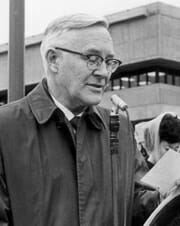Mahlum believes in the transformational power of design to create a more healthy and sustainable planet. We have come to understand the intersectionality of environmental, physical, and mental factors in shaping the quality human experience. We are committed to assuring safety and well-being for all people and the environmental eco-systems that are inextricably linked. As a practice, we continue to explore new ways to empower communities so that their voices and interests are reflected in every design process we lead.
We believe that inquiry must precede advocacy, in other words we need to ask the right questions before we can apply creativity to the design challenges presented. We work at all scales with the resources to tackle large, complex projects without sacrificing intimacy, design strength, or client service. We also know how to take on smaller projects and provide incredible value and work flow efficiency.
Who We Are, What We Do
Philosophy
Services
Architecture
Planning
Interiors
Our Client List
Our work is focused primarily in the Pacific Northwest.
View a representative list of our clients here.
A confluence of service and design excellence makes Mahlum what it is today. Of equal weight and impact, Edward Mahlum and Paul Hayden Kirk’s early influence shaped the firm’s values, defined the fundamentals of the practice, created a people-centered culture and provided an enduring legacy of community leadership. The arc of history for the firm bends in the direction of work that serves the whole — celebrating community identity, kindling connections to the earth and building neighborhood vitality.
A Tradition of Caring Distinctions:
Breaking New Ground Distinctions:
Two paths. One vision.
 Edward Mahlum, AIA, came to Seattle by way of Minnesota after spending his formative years in Norway. Trained as an architect in North Dakota, Midwest values came through in Ed’s approach — practical, steadfast and humble. He also carried with him a natural drive to serve others. For example, during WWII, he returned to Norway on a government-sponsored mission to help free his native land from the Nazis then came back to spend much of his professional energy providing comfort and housing for the aged in his beloved Seattle community. During a long and distinguished career, he designed many notable healthcare, post-secondary and housing facilities. From Ed, the firm’s deep service ethic, listening skills and passion for community-centered work developed.
Edward Mahlum, AIA, came to Seattle by way of Minnesota after spending his formative years in Norway. Trained as an architect in North Dakota, Midwest values came through in Ed’s approach — practical, steadfast and humble. He also carried with him a natural drive to serve others. For example, during WWII, he returned to Norway on a government-sponsored mission to help free his native land from the Nazis then came back to spend much of his professional energy providing comfort and housing for the aged in his beloved Seattle community. During a long and distinguished career, he designed many notable healthcare, post-secondary and housing facilities. From Ed, the firm’s deep service ethic, listening skills and passion for community-centered work developed.
 Paul Hayden Kirk, FAIA, groomed at the University of Washington School of Architecture and trained by the likes of Henry Bittman, started his career in Seattle. Paul’s body of work includes wide-ranging healthcare facilities, churches and contemplative places, and private residences. Known for adapting the international style to address regional culture and materials, he used rough-cut stone, wood and glass in contrast to Mies van der Rohe’s preferred brick, steel and glass. Iconic in stature though modest in demeanor, Paul is one of the most published architects from the Pacific Northwest of his time. He tirelessly promoted design excellence — a passion vigorously tended by the firm’s leaders today.
Paul Hayden Kirk, FAIA, groomed at the University of Washington School of Architecture and trained by the likes of Henry Bittman, started his career in Seattle. Paul’s body of work includes wide-ranging healthcare facilities, churches and contemplative places, and private residences. Known for adapting the international style to address regional culture and materials, he used rough-cut stone, wood and glass in contrast to Mies van der Rohe’s preferred brick, steel and glass. Iconic in stature though modest in demeanor, Paul is one of the most published architects from the Pacific Northwest of his time. He tirelessly promoted design excellence — a passion vigorously tended by the firm’s leaders today.
A strong civic orientation defined Ed’s career. Design innovation and professional leadership in the AIA became Paul’s passions early on and thrived for decades. Though the focus of their leadership was different, the generous contributions of talent and time from both of them made a difference in how the practice of architecture grew here and the way Northwest communities took shape. The firm still strives to produce work that is conceptual, enduring and poetic, with visionary people to enrich the human experience.
Legacy of Leadership
